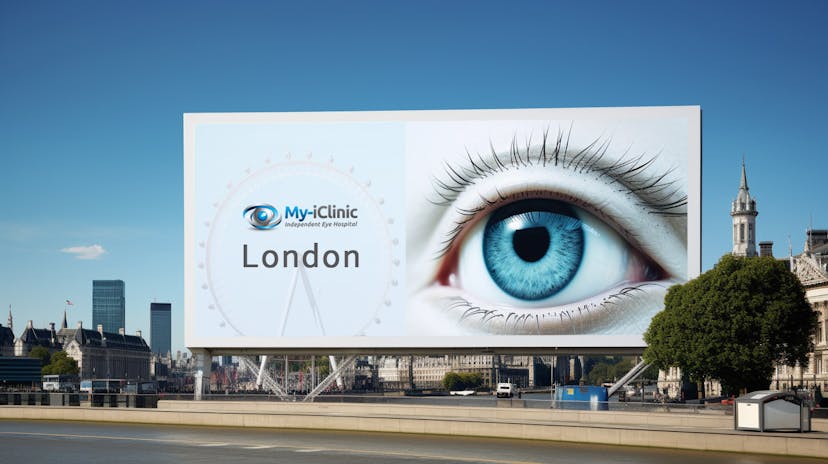
The cost of oculoplastic surgery can vary widely based on several factors, including the specific procedure(s) performed, the surgeon's experience and reputation, the geographic location of the practice, and the facility where the surgery is conducted. Oculoplastic surgery encompasses a range of procedures, each with its associated costs. Here are some general cost ranges for common oculoplastic procedures:
- Upper or Lower Eyelid Surgery (Blepharoplasty)
- Cost Range: £2,000 to £5,000 or more
- Ptosis Repair
- Cost Range: £3,000 to £6,000 or more
- Entropion or Ectropion Repair
- Cost Range: £2,500 to £5,000 or more
- Eyebrow and Forehead Lifts
- Cost Range: £3,000 to £7,000 or more
- Cosmetic Botox and Dermal Fillers
- Cost Range: Varies per unit or syringe; typically £150 to £500 per treatment area
Please note that these are rough estimates, and the actual cost can vary based on individual factors. Additionally, the quoted cost may or may not include expenses such as consultation fees, facility fees, anaesthesia fees, and postoperative care.
Before proceeding with oculoplastic surgery, it's advisable to schedule a consultation with a qualified oculoplastic surgeon. During the consultation, the surgeon can assess your specific needs, discuss treatment options, and provide a more accurate cost estimate based on your individual case.
Furthermore, inquire about what the quoted cost covers and whether there are any additional fees. Some practices may offer financing options to help patients manage the cost of elective oculoplastic procedures.

Time Frames For Each Procedure
The time frames for oculoplastic surgery can vary based on the specific procedure performed, the complexity of the case, and individual factors such as healing and recovery. Here are general time frames for some common oculoplastic procedures:
- Upper or Lower Eyelid Surgery (Blepharoplasty)
- Surgery Time: 1 to 2 hours
- Recovery Time: Initial recovery within a week, with residual swelling and bruising gradually diminishing over a few weeks to months.
- What is eyelid surgery?
- Ptosis Repair
- Surgery Time: 1 to 2 hours
- Recovery Time: Initial recovery within a week, with gradual improvement in eyelid position over several weeks.
- Entropion or Ectropion Repair
- Surgery Time: 1 to 2 hours
- Recovery Time: Initial recovery within a week, with complete healing and resolution of symptoms over a few weeks.
- Eyebrow and Forehead Lifts
- Surgery Time: 1 to 2 hours
- Recovery Time: Initial recovery within a week, with residual swelling and temporary changes in sensation gradually improving over a few weeks.
- Cosmetic Botox and Dermal Fillers
- Procedure Time: Typically 15 to 30 minutes
- Recovery Time: Immediate, with possible minor swelling or bruising resolving within a few days.
- Other common Oculoplastic surgeries.
These are general estimates, and the actual time frames can vary based on individual factors. The surgeon will provide specific preoperative and postoperative instructions to optimise the healing process. Additionally, follow-up appointments may be scheduled to monitor progress and address any concerns during the recovery period. Patients should consult with their oculoplastic surgeon for personalised information about the time frames associated with their specific procedure.

How To Prepare And What Should You Bring?
When preparing for oculoplastic surgery or a consultation with an oculoplastic surgeon, patients should ensure they have the necessary information and items to facilitate a smooth process. Here's a checklist of things patients may need to bring:
Medical Information
Any relevant medical records, including previous surgeries, allergies, and a list of current medications. Health insurance information, if applicable.
Identification and Contact Information
Driver's license or another form of photo identification. Contact information for the patient's primary care physician.
Questions and Concerns
A list of questions or concerns to discuss with the surgeon during the consultation.
Eyeglasses and Contact Lenses
If the patient wears eyeglasses or contact lenses, it's important to bring them to the consultation. The surgeon may want to assess the current prescription.
Comprehensive Medication List
A detailed list of all medications, including prescription and over-the-counter drugs, supplements, and vitamins.
Insurance Information
If the patient has health insurance coverage, bring the insurance card and any necessary pre-authorisation forms.
Payment Information
If there are consultation fees or copayments, bring payment in the form of cash, check, or credit card.
Comfort Items
Bring any comfort items such as reading glasses, a book, or headphones for the waiting period.
Support Person
If the patient prefers, they may bring a friend or family member for support and to help remember important information discussed during the consultation.
Appropriate Clothing
Wear comfortable clothing, and consider bringing a head covering if advised by the surgeon postoperatively.
Sunglasses
If the eyes may be sensitive to light after the consultation or surgery, sunglasses can provide comfort.
Patients should confirm with the surgeon's office if there are any specific items or information they need to bring based on the nature of the appointment or procedure. Being well-prepared ensures a more efficient and effective consultation or surgical experience.
Find out more by Speaking to our team









